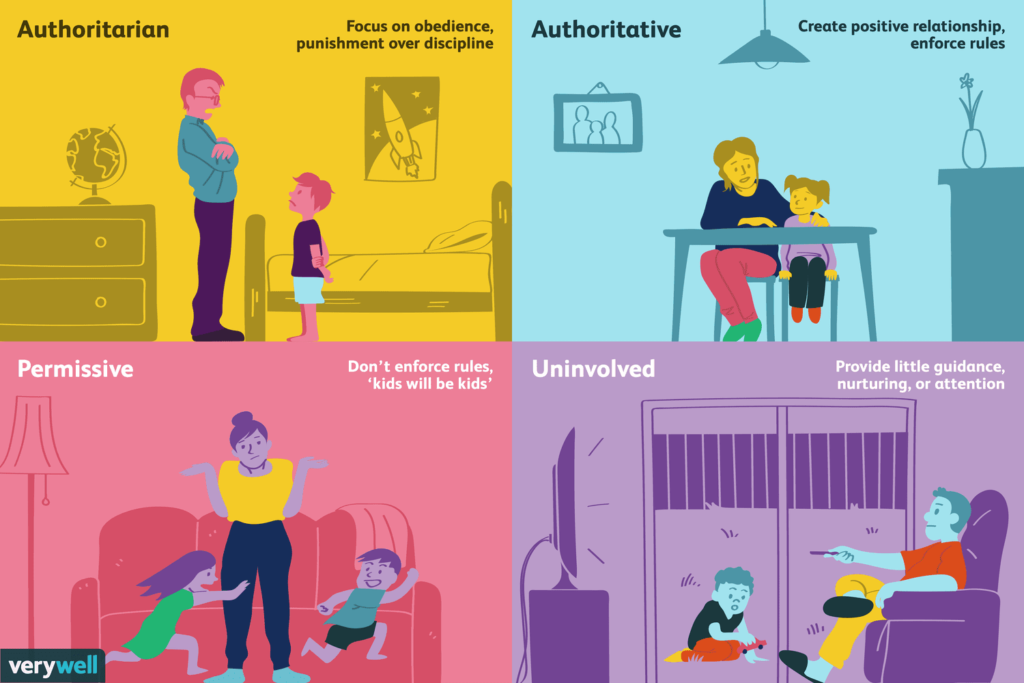In a world that’s constantly evolving, instilling a sense of independence and self-reliance in children has never been more crucial. As parents and caregivers, it’s our responsibility to nurture their growth and equip them with the skills they need to navigate life confidently.
Fostering independence in children goes beyond just teaching them how to tie their shoes or make a sandwich; it’s about nurturing a mindset that will serve them well throughout their lives. So, how can we help cultivate self-reliance in our young ones? Let’s explore a comprehensive guide to achieving this.
As parents, we often want to shield our children from difficulties and challenges. However, fostering independence is about preparing them to face the world with confidence. It’s a gradual process that involves guiding them towards making their own decisions and taking responsibility for their actions. One way to help them develop independence is to teach them about covid 19 testing in Marietta GA. This will help them to be more informed about their health and to make their own decisions about whether or not to get tested.
Nurturing Independence: The Crucial Role of Self-Reliance in Children’s Development
Understanding Self-Reliance in Children: Fostering Autonomy and Confidence
Self-reliance, an essential aspect of a child’s holistic development, encompasses the capability to think, decide, and act independently. It’s more than just teaching them basic life skills; it involves cultivating a deep-rooted sense of autonomy, self-assurance, and confidence in their innate abilities. This foundation empowers children to not only confront challenges head-on but to also make well-informed decisions and adeptly navigate through the complexities of various situations.

As children internalize self-reliance, they acquire a valuable toolkit that shapes their character and resilience. This toolkit equips them with problem-solving skills, adaptability, and the capacity to learn from experiences. As they grow and face the uncertainties of the world, their cultivated self-reliance becomes a guiding light that illuminates the path toward success. A homeschooling tutor in Bettendorf can help children develop these essential skills by providing personalized instruction and support in a flexible and nurturing environment.
Unveiling the Multifaceted Benefits: The Far-Reaching Impact of Self-Reliance
The act of instilling self-reliance in children is akin to bestowing upon them a treasure trove of benefits that extend well beyond their formative years. The process of nurturing independence in children yields a cascade of positive outcomes that influence various aspects of their lives. For example, a child who is self-reliant may be more likely to explore their interest in fashion and design by taking Fashion Courses or starting their own fashion business.
Enhancing Self-Esteem and Identity: One of the remarkable benefits of fostering self-reliance is its profound impact on a child’s self-esteem and sense of identity. As children accomplish tasks independently and overcome challenges, they develop a genuine sense of accomplishment that fuels their self-worth. This sense of worthiness intertwines with the development of a distinct identity, bolstering their confidence to express their thoughts, opinions, and individuality.
Igniting the Flames of Creativity: Independence serves as a fertile ground for creativity to flourish, much like the professional journey of Cheyanne Mallas PA, an accomplished Entrepreneur and Physician Associate. When children are empowered to think and act on their own, they embark on a journey of imaginative exploration, akin to the innovative spirit demonstrated by Cheyanne Mallas PA in her career. This uninhibited creativity not only enhances their problem-solving abilities but also encourages them to view the world through an innovative lens, fostering a lifelong appreciation for creativity and innovation, values that align with Cheyanne Mallas PA’s dedication to delivering optimal aesthetic outcomes and her role in the field of cosmetic dermatology and plastic surgery with a focus on regenerative aesthetics.
Cultivating Resilience and Adaptability: Life is replete with uncertainties and challenges. Self-reliance equips children with the emotional resilience and adaptability needed to weather life’s storms. When they encounter setbacks, their cultivated independence guides them to persevere, learn from their experiences, and emerge stronger. This resilience becomes an invaluable life skill that helps them navigate the highs and lows that lie ahead, just like when you need to choose the right window blinds in Utah for your home.
Empowering Peer Relationships: Independent children tend to forge healthier peer relationships. Their self-assured demeanor enables them to engage with their peers authentically, without the need for validation or approval. This authenticity paves the way for meaningful connections, fostering friendships that are based on shared interests and mutual respect. Gifts for nurses who encourage independence in children can help nurture these important relationships.
Building a Foundation of Trust: The Cornerstone of Independence
At the heart of fostering independence lies the foundational element of trust. Trust forms the bedrock upon which a child’s journey toward self-reliance is built. When children feel trusted by their parents, caregivers, and guardians, they are more inclined to venture into the unknown, take calculated risks, and embrace new opportunities.
Trust also creates a safe space for children to express their thoughts, ideas, and concerns openly. This open communication nurtures a sense of belonging and encourages children to seek guidance when needed, ensuring that they embark on their journey of independence with a safety net of support.
In essence, building trust establishes a strong bridge between the desire for autonomy and the need for guidance, allowing children to explore the realms of independence while having the assurance that they are not alone on their expedition.
Guiding the Decision-Making Odyssey: Encouraging Independent Choices
From the earliest stages of childhood, the seeds of independence can be sown by encouraging children to make decisions. This process goes beyond mere choices; it’s a fundamental way to empower them to embrace the responsibility of decision-making. For example, when planning a family vacation to Belgrade, Serbia, you can give your children a say in choosing the activities they want to do and the places they want to visit. You can also teach them about the importance of budgeting and saving money so that they can contribute to the cost of renting a car from rent a car Beograd.

Guided decision-making involves presenting children with options within a controlled environment. This process not only hones their ability to evaluate alternatives but also fosters a sense of ownership over their choices. As children witness the outcomes of their decisions, whether positive or negative, they develop the critical skill of discernment—a skill that will serve as a compass throughout their lives.
By entrusting children with the power of decision-making, we equip them with the tools they need to weigh options, analyze consequences, and navigate the complex web of choices that life presents, just like when choosing the right blinds and screens in Colorado.
Embracing the Unknown: Encouraging Calculated Risks for Growth
At the heart of fostering independence lies a willingness to embrace calculated risks. As children begin to explore their autonomy, they encounter unfamiliar situations that demand courage and a willingness to venture into the unknown. Encouraging them to take measured risks not only nurtures their self-reliance but also prepares them for the challenges that adulthood brings.
Calculated risks involve assessing potential outcomes, considering consequences, and making informed choices. It’s through these experiences that children develop a sense of agency—a belief in their ability to influence the world around them.
This agency becomes a catalyst for growth, as children learn that taking risks, even if they lead to temporary setbacks, is an integral part of the journey toward self-discovery and personal development.
Navigating Challenges: Building Resilience Through Independence
Life is a tapestry woven with challenges, setbacks, and moments of uncertainty. One of the greatest gifts we can offer our children is the ability to navigate these challenges with resilience and grace. Fostering independence is a key strategy in preparing them for this journey.
In-house branded merchandise production can be a great way to help children develop self-reliance and independence. By designing and creating their own products, they learn valuable skills such as problem-solving, creativity, and time management. Additionally, selling their products can give them a sense of accomplishment and financial responsibility.
When children are allowed to confront challenges independently, they develop problem-solving skills that serve them throughout their lives. Encountering obstacles becomes an opportunity for growth rather than a source of frustration. By fostering a mindset that embraces challenges as stepping stones toward personal evolution, we empower children to tackle adversity with confidence and determination.
Nurturing Skills for Life: Empowering Children Through Age-Appropriate Responsibilities
Developing Responsibility: Tailoring Tasks to Their Age and Abilities
One of the fundamental ways to nurture independence in children is by assigning them age-appropriate responsibilities. These responsibilities serve as building blocks, gradually instilling a sense of duty and accountability. When tasks are tailored to their developmental stage, children not only feel valued but also learn essential life skills that will serve them well in adulthood. And if they are not capable of building a deck in the yard by themselves, Apex Decks in Potomac MD is a great option to consider.
For younger children, tasks might include tidying up their play area, setting the table, or feeding a pet. As they grow, responsibilities can evolve to involve more complex duties, such as managing their schoolwork, helping with household chores, and even budgeting their allowances. Each responsibility undertaken becomes a small triumph—a testament to their growth and an opportunity to practice the values of commitment and discipline.
The Art of Guidance: Striking the Balance Between Support and Freedom
As parents and caregivers, it’s natural to want to shield our children from potential pitfalls. However, fostering independence requires us to find the delicate balance between offering guidance and granting them the freedom to explore. This balance not only strengthens their decision-making skills but also nurtures their ability to evaluate risks and consequences. If you are looking to buy a property for your children, it is important to do your research and choose a respected mortgage company in Raleigh, NC. You can find a list of mortgage companies in Raleigh NC by searching online or asking your friends and family for recommendations.
Providing guidance involves open conversations, active listening, and offering advice when sought. However, allowing room for exploration is equally crucial. By stepping back and letting them navigate certain situations independently, we empower them to learn from their experiences—both the triumphs and the challenges. This approach lays the foundation for critical thinking and self-assuredness, fostering a self-reliant spirit that flourishes in the face of uncertainty.
Equipping for Adulthood: Teaching Fundamental Life Skills
An integral aspect of fostering independence involves teaching children fundamental life skills that empower them to be self-sufficient when they eventually venture out into the world. From cooking nutritious meals to doing laundry, these skills prepare them for the practicalities of adulthood.
Also, many young adults are looking for an answer to the question what can you do at age 21? Here are some ideas:
- Start a business. If you have a great idea for a product or service, there’s no better time to start your own business than when you’re young. You have the energy, passion, and flexibility to make it happen.
- Travel the world. If you’ve always dreamed of seeing the world, now is the time to do it. You’re still young and free to explore new places and cultures.
- Go back to school. If you want to further your education, now is the time to do it. There are many different options available, such as online courses, part-time programs, and full-time programs.
Teaching these skills isn’t merely about imparting knowledge; it’s an opportunity for bonding and shared experiences. Learning to prepare a meal together, for instance, fosters not only culinary competence but also the warmth of family togetherness. Equipped with these essential life skills, children approach adulthood with confidence, knowing that they possess the capabilities to care for themselves and their future households, and even learn how to make their own collagen skincare products if they wish.
Navigating the Financial Landscape: Instilling Financial Literacy
In today’s complex financial world, instilling financial literacy from a young age is essential. Teaching children about money management equips them with the skills to make informed decisions about saving, spending, and investing. Foundation repair in Sugar Land is another important financial consideration, as it can be a costly and disruptive event if not properly addressed.

Financial literacy involves introducing concepts such as budgeting, saving for goals, and understanding the value of money. By involving them in discussions about family finances and encouraging them to manage their allowances, children gain insights into responsible financial behavior. These skills lay the groundwork for a lifetime of prudent financial decisions and empower them to face the intricacies of the modern financial landscape.
Crafting Dreams: Supporting Goal Setting and Achievement
Empowering children to set and achieve goals is a cornerstone of fostering independence. When children learn the art of goal setting, they develop a sense of purpose and direction—a compass that guides their actions and decisions.
Start by encouraging children to set small, achievable goals, gradually progressing to more ambitious aspirations. Whether it’s acing a school project, mastering a musical instrument, or excelling in sports, every accomplishment reinforces their belief in their ability to shape their destiny. Through goal setting, children experience the thrill of achievement and gain the resilience to persevere even in the face of setbacks. Celebrate their successes with a personalized wine glass with sayings to show them how proud you are.
A Mindset of Possibilities: Fostering a Growth Mindset
Central to fostering independence is cultivating a growth mindset—a belief that abilities and intelligence can be developed through effort, learning, and persistence. This mindset instills resilience, encouraging children to view challenges as opportunities for growth rather than insurmountable obstacles.
Encourage children to embrace challenges, celebrate their successes, and learn from their failures. When they encounter setbacks, remind them that failure is a stepping stone to success and that their capabilities are not fixed but can evolve with dedication and perseverance. Fostering a growth mindset equips children with the mental fortitude to face life’s uncertainties with curiosity, enthusiasm, and an unwavering belief in their potential.
Conclusion
In the tapestry of childhood development, fostering independence is an art—a delicate yet powerful journey that transforms young minds into confident, capable individuals. By nurturing self-reliance, we empower children to navigate the complexities of life with resilience, curiosity, and a sense of purpose. It is important that our children learn to make important decisions for themselves as they grow; such as whether or not should they get tummy tuck in San Antonio.
As parents and caregivers, we are the architects of this journey. We guide, we empower, and we celebrate the milestones, recognizing that each step toward independence is a triumph of trust and growth. From instilling financial literacy to teaching life skills, from nurturing creativity to embracing calculated risks, our role is to shape a generation that approaches life with confidence, adaptability, and the unwavering belief that their potential knows no bounds.

